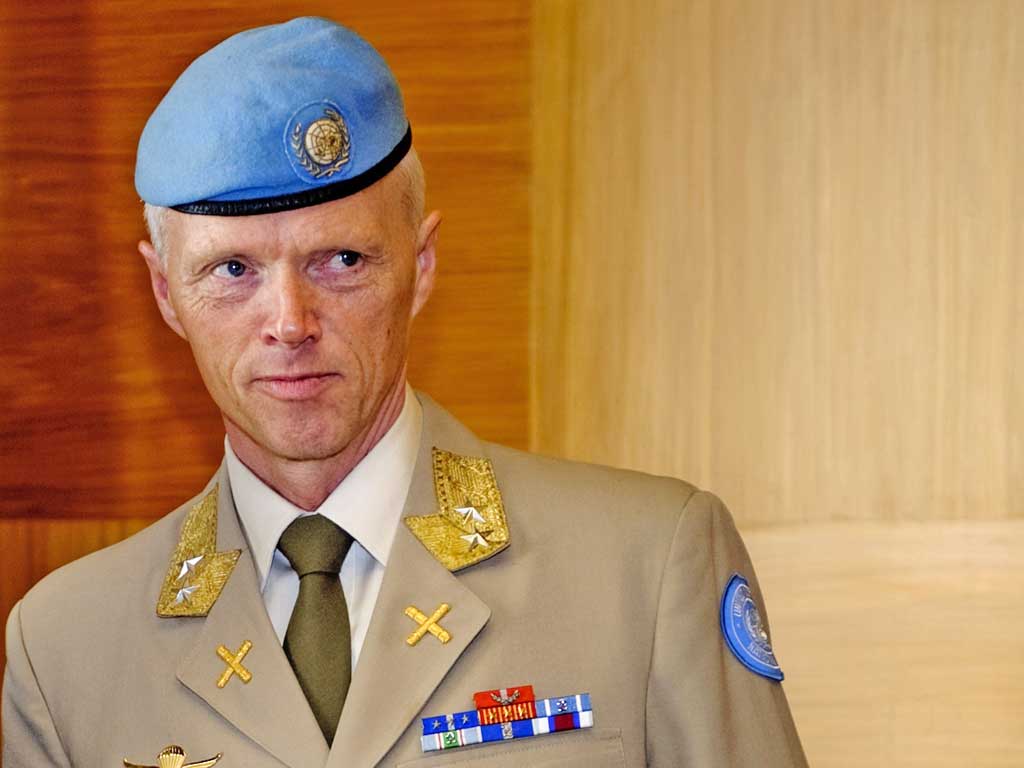Top UN observer urges Syria to co-operate
Norwegian envoy sounds cautious note as more monitors deploy to conflict hotspots

Your support helps us to tell the story
From reproductive rights to climate change to Big Tech, The Independent is on the ground when the story is developing. Whether it's investigating the financials of Elon Musk's pro-Trump PAC or producing our latest documentary, 'The A Word', which shines a light on the American women fighting for reproductive rights, we know how important it is to parse out the facts from the messaging.
At such a critical moment in US history, we need reporters on the ground. Your donation allows us to keep sending journalists to speak to both sides of the story.
The Independent is trusted by Americans across the entire political spectrum. And unlike many other quality news outlets, we choose not to lock Americans out of our reporting and analysis with paywalls. We believe quality journalism should be available to everyone, paid for by those who can afford it.
Your support makes all the difference.Touching down in Damascus yesterday, the new head of the United Nations' observer team cautioned that his mission would not be a silver bullet that would resolve Syria's conflict, as escalating violence and mistrust continued to thwart plans for peace.
Major General Robert Mood, who will oversee the 300 observers the UN has authorised for deployment, admitted the team faced a daunting task ahead because the ceasefire lay in tatters in parts of the country.
The veteran Norwegian peacekeeper called for both sides to lay down their weapons. "Thirty unarmed observers, 300 unarmed observers, even 1,000 unarmed observers cannot solve all the problems," he said. "I call on everyone to help us and co-operate with us in this very challenging task ahead."
Maj-Gen Mood, 53, arrives amid growing doubts about the viability of the UN-Arab League envoy Kofi Annan's six-point peace plan while the Syrian army continues its relentless campaign of violence and rebels step up attacks on President Bashar al-Assad's security forces.
Frustrations with the UN are increasingly voiced in daily protests across Syria, with a sign at a recent rally in Hama reading: "Special offer: collect 1,200 martyrs and get 30 monitors in return."
At least 18 people were killed across the country yesterday, according to the Local Co-ordination Committees. Half of those were reported to have been killed in Hama province, where a local activist, Mousab Alhamadee, told The Independent that heavy shelling had begun in the early hours of the morning.
The Syrian regime is becoming openly hostile towards the UN mission, adding to doubts about the future of Mr Annan's plan. On Saturday, state media accused the UN Secretary General, Ban Ki-moon, of making "outrageous" comments about the conflict and derided him as being biased. The UN has criticised both sides for breaking the ceasefire, but has said the Syrian government's violations outweigh those of the rebels. Teams of two or three observers have been placed in the trouble spots of Homs, Hama, Idlib and Deraa. While the violence appears to have tapered off slightly, there are still regular street battles and bombardments.
The UN has stressed that it is imperative that monitors are deployed as rapidly as possible, before the ceasefire collapses altogether, but just 16 of the advance team of 30 were on the ground yesterday. The UN has given no explanation for the excruciatingly slow progress of the deployment, but the Syrian government has rejected some appointments, saying it will not accept monitors from any countries in the "Friends of Syria" group. Ahmad Fawzi, a spokesman for Mr Annan, said he expected the full advance team to be in place by the end of today.
Analysts have long written off Mr Annan's plan as doomed to fail but, with few diplomatic options on the table, the international community has been pushing on with it, regardless of the flagrant violations on both sides.
A further bomb blast rocked Damascus yesterday, after five on Friday, raising concerns that the conflict will increasingly turn into a guerrilla-style insurgency as rebels, poorly equipped compared with the regime's troops, use any means possible to hit back.
Join our commenting forum
Join thought-provoking conversations, follow other Independent readers and see their replies
Comments